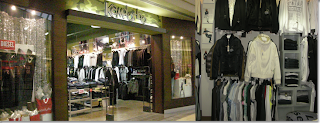
While refolding a pile of t-shirts that just got destroyed by a careless customer, I watch as a woman stares blankly outside the store I work for, at the unfamiliar store sign that reads Kamdorbo.
I hear trying to pronounce the Japanese store name to herself, “Kammmdor, Kamduro, Kamdobo?”
Kam-door-bo is the correct way to pronounce the store name that means good fortune in Japanese.
Kamdorbo is a family owned clothing store that is located on the upper level of Markville Mall in between Jean Machine and Soft Moc.
It has been in Markville Mall for over 10 years but not many customers know about it because it is not a chain clothing company.
Those who do know about it are familiar with the large variety of different fashion lines such as; Diesel, G-Star, J. Lindeberg, Rock & Republic, True Religion, Energie, Miss Sixty and Killa.

The store is not organized in a way for customers to find clothing easily which discourages many.
Jeans and t-shirts are neatly folding and piled on top of one another which makes it hard for customers to pick through without being worried of making a mess.
Besides the lack of organization, Kamdorbo offers the widest selection of denim for Diesel, G-Star, Energie and more.
They continuously monitor the fashion industry to ensure that customers have the latest styles to choose from.


